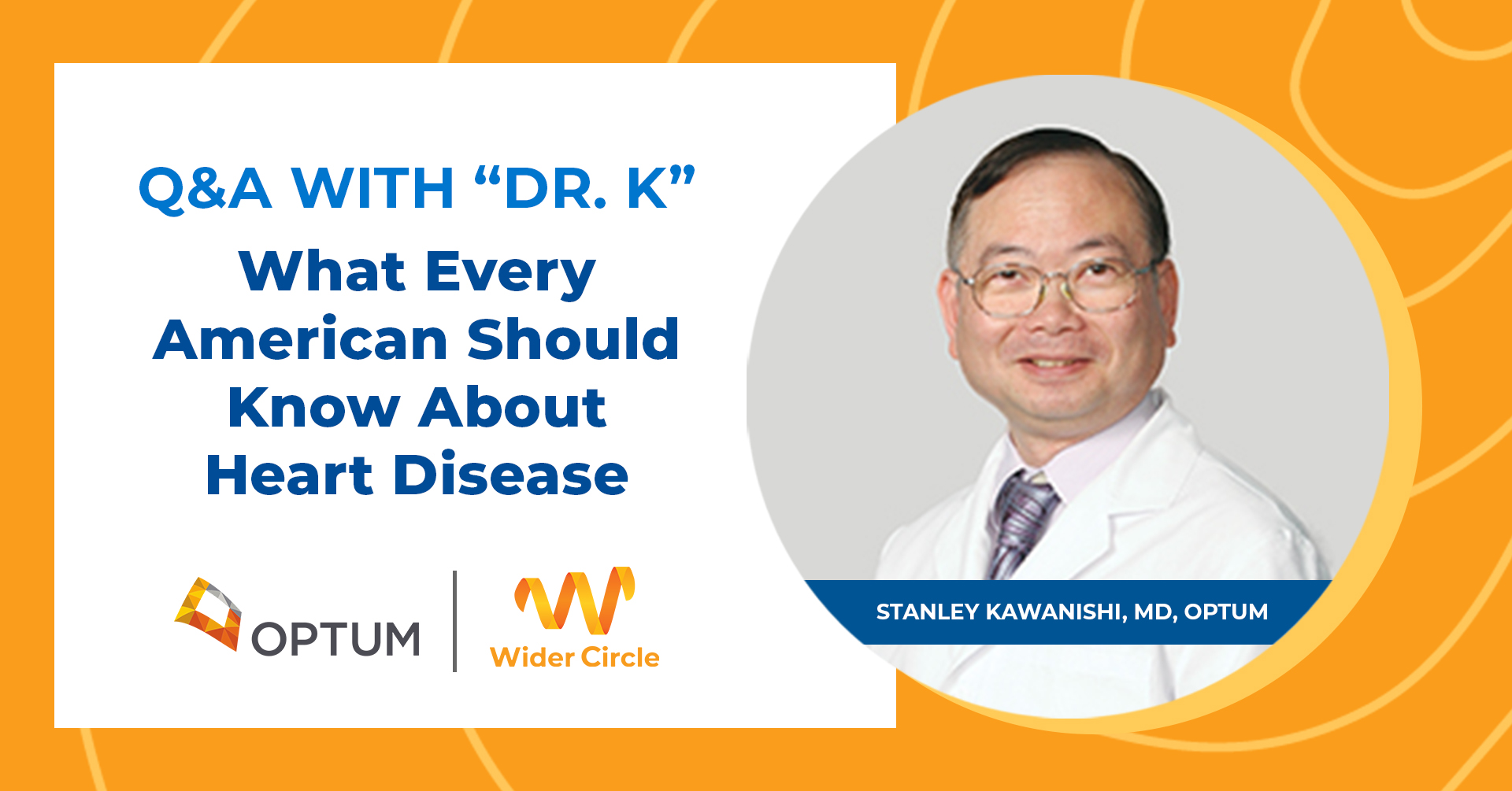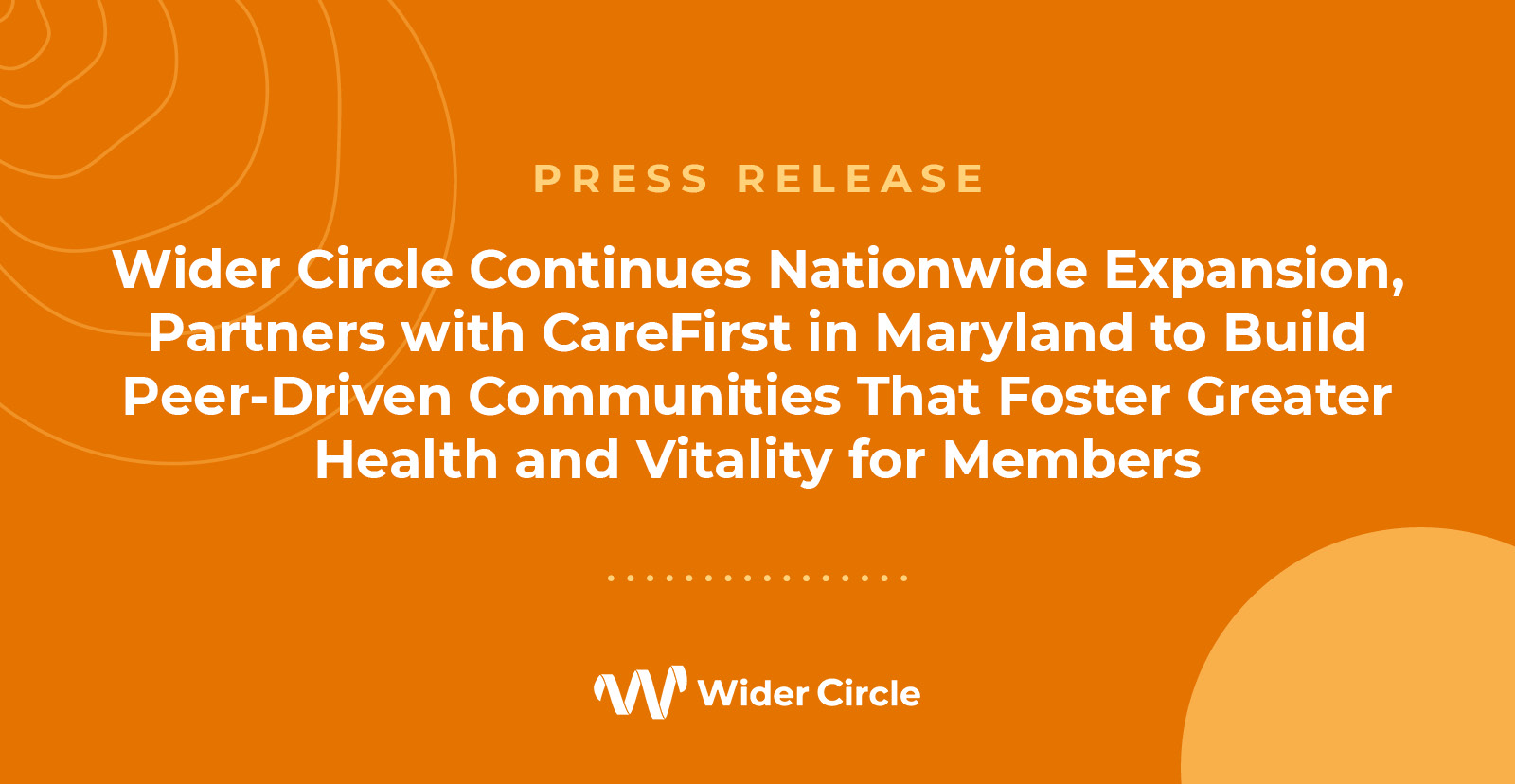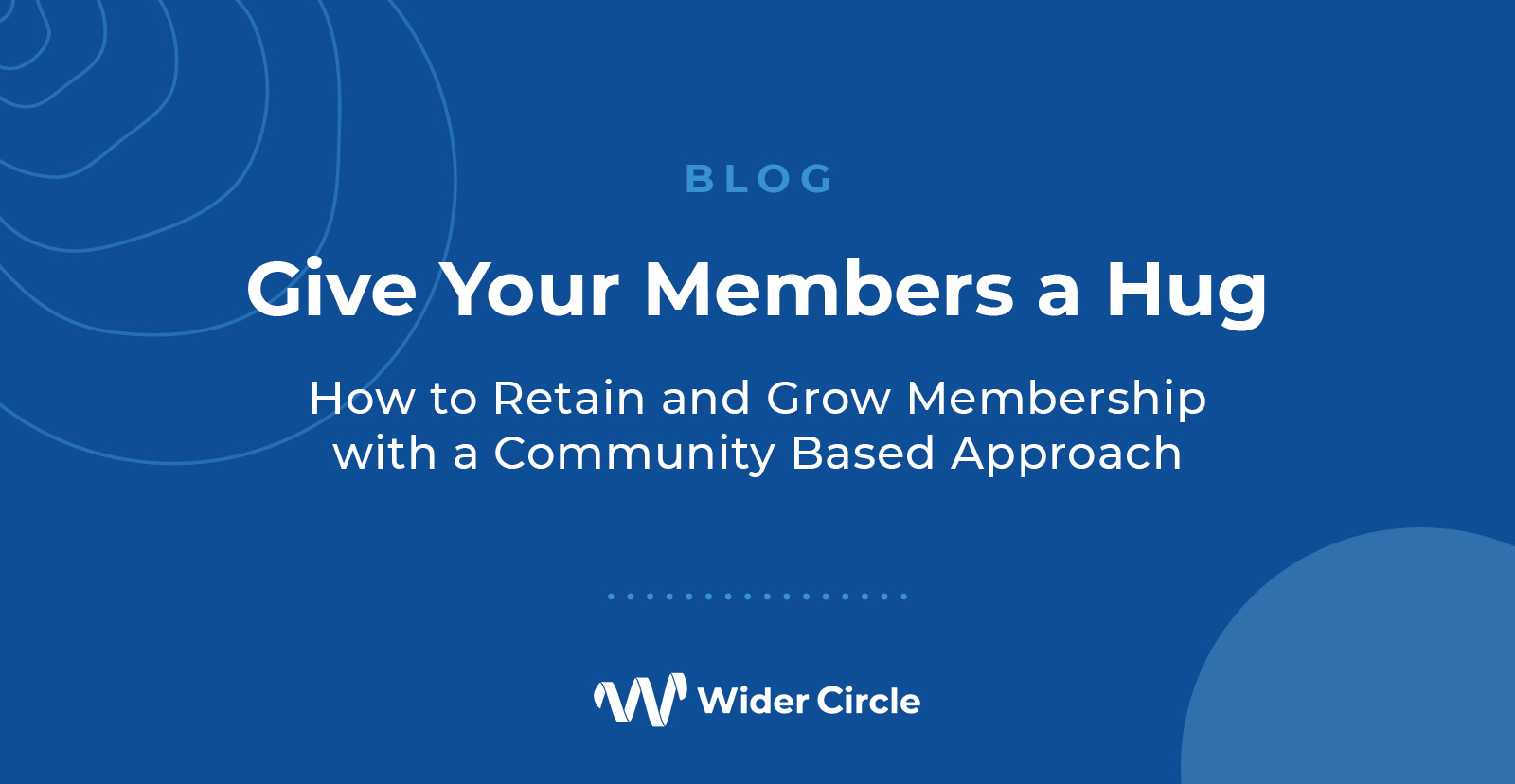
February is American Heart Month, and Wider Circle had the chance to talk heart health with Dr. Stanley Kawanishi, an interventional cardiologist for Optum California. Heart disease affects nearly half of all adults in the US, it’s the #1 killer globally, and 80% of people who die from heart disease are age 65 and older (American Heart Association). But it doesn’t have to be that way. We learn from Dr. K that there are a few simple but important steps we can all take to reduce our risk of heart disease and live longer and better.
Wider Circle: Dr. Kawanishi, thank you so much for talking with us today about the #1 health risk for adults, especially for our senior and vulnerable communities. Let’s start off with the basics. What is heart disease?
Dr. Kawanishi: The four most common types of heart disease are coronary artery disease, arrhythmia, heart valve disease and heart failure. What we are concerned most about is coronary artery disease, which is basically when you get clogged arteries. We call it a lifestyle-related disease because the leading cause is smoking tobacco, followed by being overweight. The percentage of Americans who smoke has dropped steadily over time. We are more concerned with the over 40% of Americans who are considered overweight because too many extra pounds typically leads to diabetes, high blood pressure and/or high cholesterol – and all three of these diseases lead to higher risk of clogged arteries.
WC: What are the warning signs adults should look for when it comes to this common form of heart disease?
Dr. K: Chest pains or shortness of breath is a clear sign that you could be at risk. See your primary physician if you are experiencing these symptoms – do not ignore them. Your physician will run the proper tests and refer you to a specialist if needed. They are well trained in evaluating all warning signs. While there are other symptoms associated with heart disease – like swelling of the feet, fatigue and dizziness – these are less common and can be due to other problems. But if you have chest pains and/or shortness of breath, physicians will catch most cases.
WC: What are some common myths out there about heart disease?
Dr. K: Despite an increase in heart disease awareness over the past decades, many of my patients are still surprised to learn that it is the #1 killer for females as well. It’s not just a “man’s disease”.
WC: So what are the most important things we can do to prevent heart disease? Exercise? Go on a special diet?
Dr. K: It’s true that if you eat well and stay within a healthy weight range for your body type, you are not likely to get heart disease. But here’s the thing many people don’t realize: If you are overweight, exercise really isn’t going to do much. Sure, it will help keep your heart strong and your arteries flexible, ensuring good blood flow and a normal blood pressure. But the best way to keep your weight down and live longer and better is to change your diet.
WC: OK, but for many of us it is very hard to stop eating delicious food that may not be so healthy for us. Do you have any tips for success that are actually easy to stick with?
Dr. K: You don’t have to pay lots of money for a fancy weight loss plan. A trick I’ve been using with my patients for years and have had a lot of success with is to simply cut your portion of favorite foods in half with a knife. Then, fill that empty half of your plate with as many non-starch vegetables as you like. Keep a Tupperware container of cut up broccoli, cauliflower, spinach, cabbage or radishes so they’re always ready in your fridge. Dip them in zero-calorie salad dressing for extra flavor. My favorite brand is Walden Farms, which you can get at Sprouts and many other grocery stores. They have tons of flavors and you can switch them up to keep things exciting.
WC: Got it! Eat what you want but just cut your portions in half, fill the fridge with non-starch veggies and dip them with zero-calorie dressing to your heart’s content. That is really good news for those of us who struggle with keeping the weight off and may not have the time or desire to exercise a lot. Thanks for all of the heart-healthy information today, Dr. K!
Dr. K: My pleasure. Happy dipping!
Infographic: Heart Healthy Tips and Tricks

______________________________________
About Dr. Kawanishi
Stanley Kawanishi, MD, is board certified in cardiovascular disease. Dr. Kawanishi earned his medical degree from the University of Missouri-Columbia. While there, he was elected to the honors medical society, Alpha Omega Alpha. He completed his internship at Los Angeles County-USC Medical Center and his residency at Huntington Memorial Hospital in Pasadena, Calif. He also completed a fellowship at Long Beach VA Medical Center. An avid sports enthusiast, Dr. Kawanishi cares for and respects the dignity of each patient he sees.


